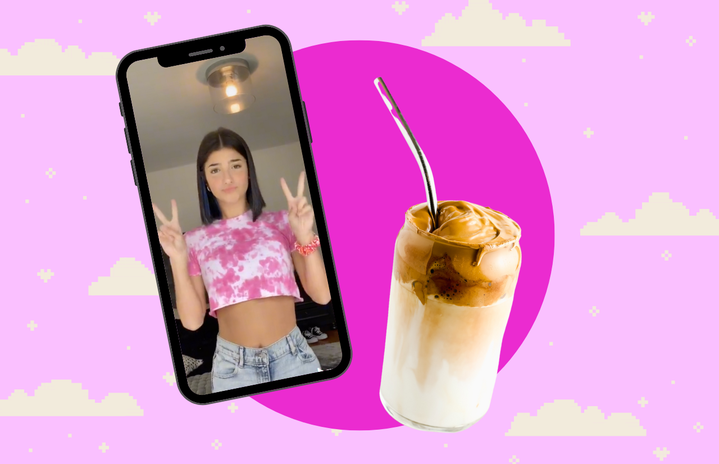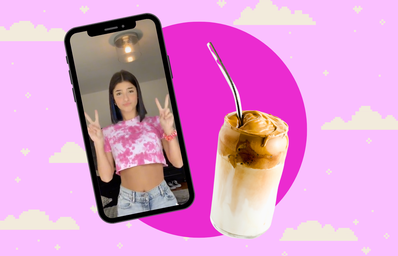Almost three years after the dreadful period that began in March 2020, it seems we’ve finally moved on. For the first time in two and a half years, days go by that the word “COVID” doesn’t escape from our mouths — and the days of quarantine are a memory that sometimes feels like a fever dream.
But with quarantine in hindsight, some of us have been reflecting on this experience more and more. Recently, Gen Z-ers on TikTok have expressed how much they miss quarantine — the simplicity, the trends, the family time, and don’t forget about those “mental health walks.” Additionally, countless users have shared that they can’t believe they miss this time, admitting that they’re nostalgic for quarantine.
Especially coming from the generation that lost so much from COVID, it’s peculiar to see such a positive response a few years later. Like, did we forget how hard this period was? We missed vital years of high school, graduation, college, or a mix of all three (@ my fellow 2020 grads). We weren’t able to live out the social lives we’re supposed to have as young adults, and human beings in general. Most Gen Z-ers had never been so restricted before. So why do people miss lockdown now? Well, there are a lot of reasons — and it’s much deeper than just reminiscing about old TikTok trends.
Her Campus spoke to experts in the field — Andrew Roth, Rachel Gersten, Dr. Harold Hong, Angela Dora Dobrzynski, and Claire Grayson — to take a closer look at this phenomenon.
Gen Z is a nostalgic generation.
We already know that Gen Z loves romanticizing the past. We spend much of our time looking back on key parts of our lives — just think about how trendy 2000s fashion is. For a generation so young, our obsession with the past is definitely noteworthy — and quarantine is no exception.
Unlike any other generation, we have tools like social media to document our experiences — so it’s easier to look back on our happier memories from quarantine. “Gen Z has the unprecedented ability to instantly tune in to these vibes and feelings of moments of the past, fueling a widespread nostalgia cemented deep into the hearts of our generation,” Andrew Roth, founder of Gen Z research firm dcdx, tells Her Campus. We’re constantly fed the highlights of the past, Snapchat Memories being one prime example.
But even when events weren’t necessarily fun at the time, we still focus on the positives. “As we look back, we tend to view events in a more positive lens than we experienced them initially,” licensed therapist Rachel Gersten says.
But, of all things to be nostalgic for, why have we chosen to look back at quarantine in a positive way? What is it about lockdown that Gen Z is longing for?
In a fast-paced world, Gen Z misses the rare occasion when we could hit the brakes.
During the pandemic, we had absolutely nothing to do. Why do you think there were so many new trends — from whipped coffee to endless TikTok dances? That was all there was to do. Plus, professors and bosses constantly advised us to take it easy.
Now, two and a half years later, we’re all back to our busy, stressful lives and wishing we could catch a break. This leads us to think back to the one time our schedules were wide open.
“The pandemic and its restrictions forced us to slow down,” psychiatrist Dr. Harold Hong tells Her Campus. “For many, this was a much-needed break from the hustle and bustle of everyday life. We were able to take the time to appreciate the simple things in life. This includes time to read, cook, and exercise.”
There’s no doubt that introverts may look back on quarantine, longing for some extended alone time, but what about the extroverts? Well, even those who love the busy nature of life may want a break now and then.
“Even some extroverts look back on a time when life was still. We’ve returned to ‘business as usual,’ and things feel busy and frantic,” says certified grief counseling specialist Angela Dora Dobrzynski. Despite the anxiety quarantine may have provoked, it was the one time we could stop and catch our breath — causing us to miss it when our schedules become packed again.
The pandemic brought us together in a new way.
Think about it: How many times did you hear the phrase “we’re all in this together” during the first lockdown? (and don’t forget when the High School Musical cast performed the song as a quarantine pick-me-up).
At the beginning of the pandemic, we were all about conquering negativity together and staying strong. Plus, there were no vaccines to fight over yet, and other contentious issues were momentarily pushed aside. “The togetherness in our fight against this novel disease was enough to warm anybody’s heart,” psychologist Claire Grayson tells Her Campus.
Starting in March 2020, all of the worries and panic made us realize what matters most in life. With divisions in opinion and political stances growing every day, unity is definitely one aspect of the quarantine period worth looking back on. “It was a time when we realized how important our community is and how much we need each other,” Dr. Harold Hong explains. “In some places, community pantries and other initiatives popped up to help those struggling. This sense of community is something that people are missing now and looking back on fondly.”
And sure, this sense of unity in lockdown may not serve to explain why people miss making whipped coffee or watching Charli D’Amelio’s rise to fame — but it certainly contributes to the positive vibe people now associate with lockdown. Even though lockdown was such a tough time, we experienced it together. That’s something we may have taken for granted at the time.
Despite the fondness we may have for this period now, remember that there were serious downsides — ones that almost feel too obvious to explain. The pandemic was scary and unknown and caused millions of people to lose their loved ones. Even if you just mean to innocently comment on the fun trends from that time period, it may come across as insensitive.
We wished for COVID to make its way to the past for two years — now that life is back to normal, why look back and miss an event that was actually pretty terrifying at the time? For now, it’s just better to focus on the present. You never know — maybe one day, we’ll be looking back at our lives now, missing it just as much.


